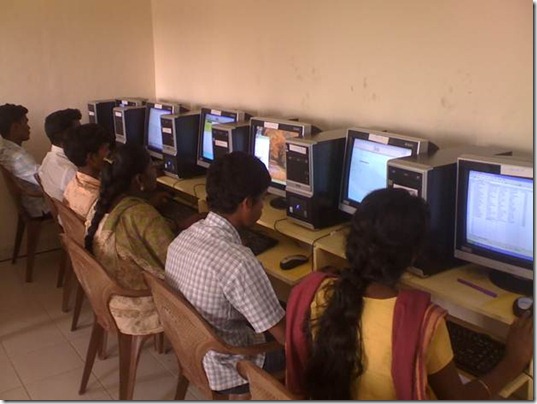The impact of training goes beyond employment
I spent some time recently with Nalini Gangadharan, Chairperson of the CAP Foundation. Nalini was in Seattle for our Accelerator Summit and it was the first time we had met in over two years. Nalini is an amazing community activist and it was great to see her again. Hearing her stories reminded me of how a relatively small contribution can have such a significant impact. We have supported CAP through our Community Technology Skills Program for several years now and our employees in India support CAP as volunteers and through financial contributions. With programs established in 15 states in India, CAP is opening up opportunities for tens of thousands of people and transforming communities through skills and training.
Most importantly, CAP has continued to improve programs through constant analysis of what is or isn’t working. They start with a deep understanding of the local marketplace through a landscape assessment – which industries are growing, which are in decline, what local employers are looking for in terms of skills. Then they evaluate the skills of local people. They don’t lead with skills training – rather they focus on providing the most relevant training content and approach based on local needs. The basic IT skills training curriculum from Microsoft is a critical component but certainly not the only ingredient.
With a focus on workforce development, CAP has an amazing record of placing 72% of graduates in jobs – in retail, healthcare, hospitality, automobile, and consumer goods repairs and servicing as well as many other sectors. I think that this illustrates that technology skills are not just in demand in the IT professions, or in call centers or business process outsourcing. We know that in the next five years, the vast majority of jobs will need at least a basic familiarity with information technology.

Training for a bright future: CAP Foundation training center in Hyderabad, India
Clearly employment can change a person’s life and that of his or her family, but CAP also tracks the return on investment to communities – based on the increased incomes of individuals, business growth, etc, that can be tied in some way to the training programs. In many of their programs there is nearly a twentyfold return to the local community.
The impact of these programs goes far beyond direct economic benefit to communities. In almost all cases we are talking about empowerment of individuals through increased self-confidence and changing mindsets in families and communities. One story Nalini shared was that of a young female victim of sex trafficking. Through some miracle this young woman returned to her community, but completely traumatized and unable to communicate or function due to the abuses she suffered. Part of her recovery process included training through CAP. Today, she is a confident young business woman with a family of her own. You simply cannot assign a return on investment to that story.
CAP is now expanding to the Middle East and Africa region, testing their proven methodologies in new contexts and cultures and with additional partners. I am confident that their track record of success will continue.